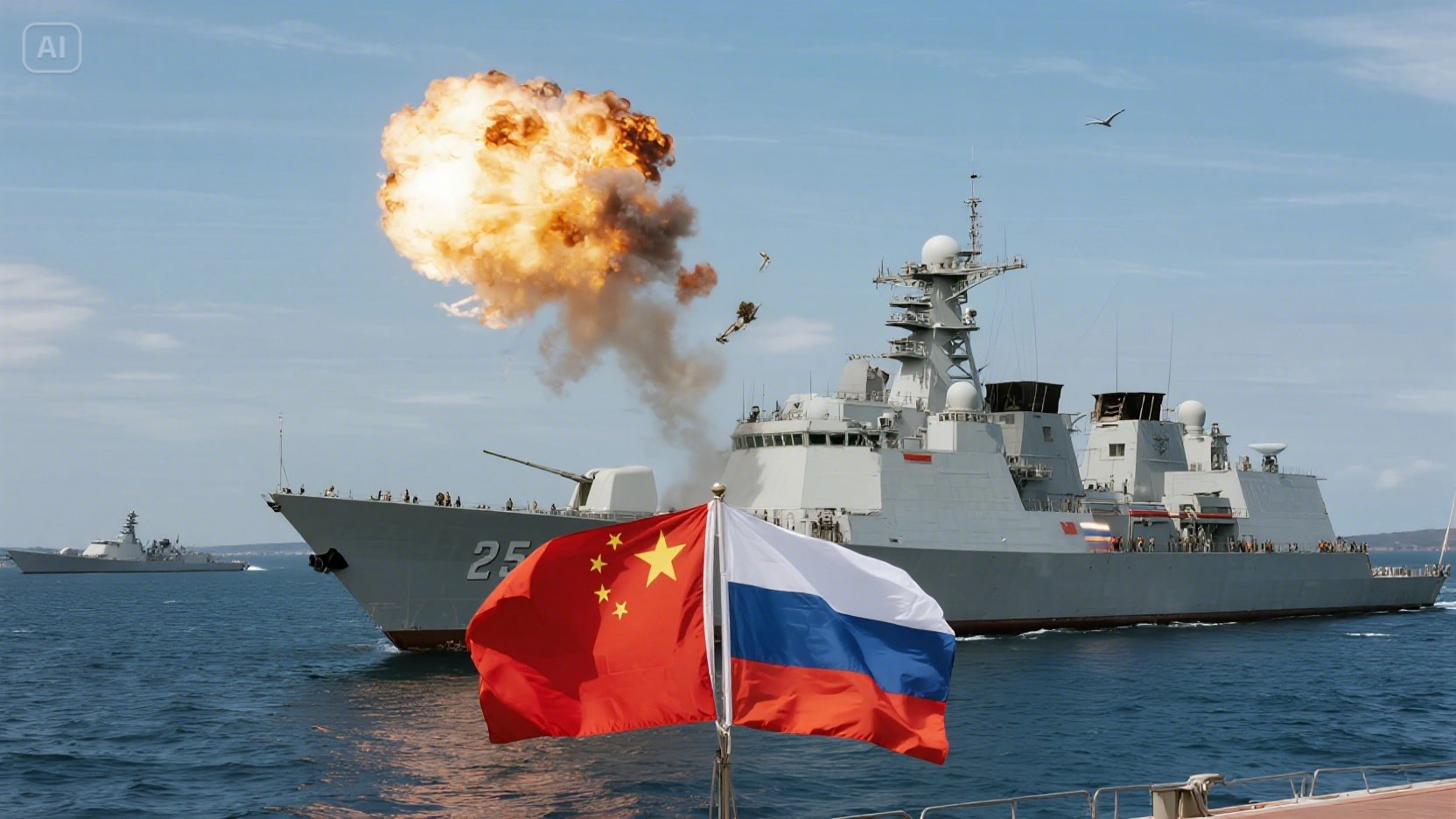China and Russia Launch Joint Sea‑2025 Naval Exercises in the Sea of Japan
China and Russia formally commissioned their Joint Sea-2025 naval exercises training on the Sea of Japan. Its emergence on August 3, 2025, which marks another step toward deepening their military alliance despite fact that plans are in gestation to realign the high stakes of strategic orientation to Indo-Pacific region. The maneuvers, involving submarines and air forces, will include complex naval training such as submarine rescue, joint anti-submarine warfare, and air defense, as well as a broad range of maritime combat operations.
The contemporary drills display the signs of a more advanced activity under the Sino-Russian naval collaboration auspices and of a vaster strategic rivalry. At least four Chinese ships have gone there which were guided-missile destroyers Shaoxing and Urumqi, and two Russian ships. Notably, on such drills, a Chinese Kilo-class attack submarine, first purchased by China in the 1990s, paid its inaugural visit to Russia, and this goes to show the budding naval ties between the two countries. By the success of the drills, the combined navies will proceed with patrolling on big waters of Pacific Ocean with the feeling that it is a long term operational deployment and not a training exercise.
The drills are a fixed schedule line since the first ones in 2012, when the practice rotated locations with 2011 one being held on the southern coast of China and the new round of the drills being organized in the Russian waters of the territory as the sign of Moscow taking the organization and planning of the event under its rule.
The maneuvers are part of an already earthquake-like geopolitical tensions, with both countries acting as a counterweight to what they believe is a US-dominant and unipolar world order. The two powers: China and Russia have been doubtful of this global system, and they highlight their practice sessions as a neutral cooperation strategy, which is not focused on any third party, although the western political force supporting Ukraine has continued to question Beijing on its directive concerning the war in Ukraine.
The wider regional stakes of the actions are anteceded by the strategic cost of the Sea of Japan which is shared by Russia, Japan and Korea. They are a clear message of increased military orientation and preparedness to Washington, Tokyo and other major capitals. The focus on shifting from traditional naval drills to integrated multidomain operations; that includes air defense and anti-missile capabilities, as one of the strategic policies is the sophisticated approach to maritime security and deterrence as it seeks to provide a long-term presence and operational depth within the Pacific.
In the real context, these exercises coincide with the US-led high profile of the Resolute Force Pacific 2025, using thousands of people and hundreds of aircraft throughout the Indo-Pacific, emphasizing the increasing great power struggle in the region. This combination of commonality and diversity is evident in the spate of China-Russia joint exercises that have increased in frequency, magnitude, and even scope as half of the total 113 such drills by the two since 2003 have taken place over the last half a decade.
To sum up, the Joint Sea-2025 drills are something bigger than the regular naval collaboration; it is a strategic discourse and depictive of Sino-Russian unity and sophistication. Although the cooperation has the potential to realign the naval forces in Northeast Asia and contribute to the new security arrangement in the Pacific, its impact would extend well beyond the drills themselves.
Disclaimer: The views and opinions expressed in this article are exclusively those of the author and do not reflect the official stance, policies, or perspectives of the Platform.








